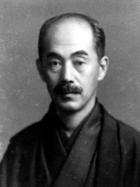
Kunio Yanagida (柳 田 國 男, 'Yanagida Kunio?', July 31, 1875 - August 8, 1962) was a Japanese scholar who is often known as the father of Japanese folklore, or minzokugaku. He was born in Fukusaki, Hyōgo Prefecture. After graduating from law at the Imperial University of Tokyo, he obtained employment as a bureaucrat in the Ministry of Agriculture and Commerce. In the course of her bureaucratic duties, Yanagita had the opportunity to travel throughout Japan. During these business trips, he was increasingly interested in observing and recording data regarding local customs in the villages. Under the influence of literary friends such as the writer Shimazaki Toson, Yanagita published works presumably based on local oral traditions such as Cuentos de Tono (1912). He collaborated extensively with the folklorist Kizen Sasaki, and together they published numerous books. Yanagita's focus on local traditions was part of a larger effort to insert the lives of the comuneros into narratives of Japanese history. He argued that historical narratives were typically dominated by events pertaining to rulers and high-ranking officials. He claimed that these narratives focused on the historical events of the elite and ignored the inconclusive and repetitive accounts of lives characterized in normal Japanese people throughout history. He emphasized the unique practices of different groups of ordinary people, such as sanka or mountain dwellers, and islanders. His work is often innovative and sometimes has unique cultural records.






